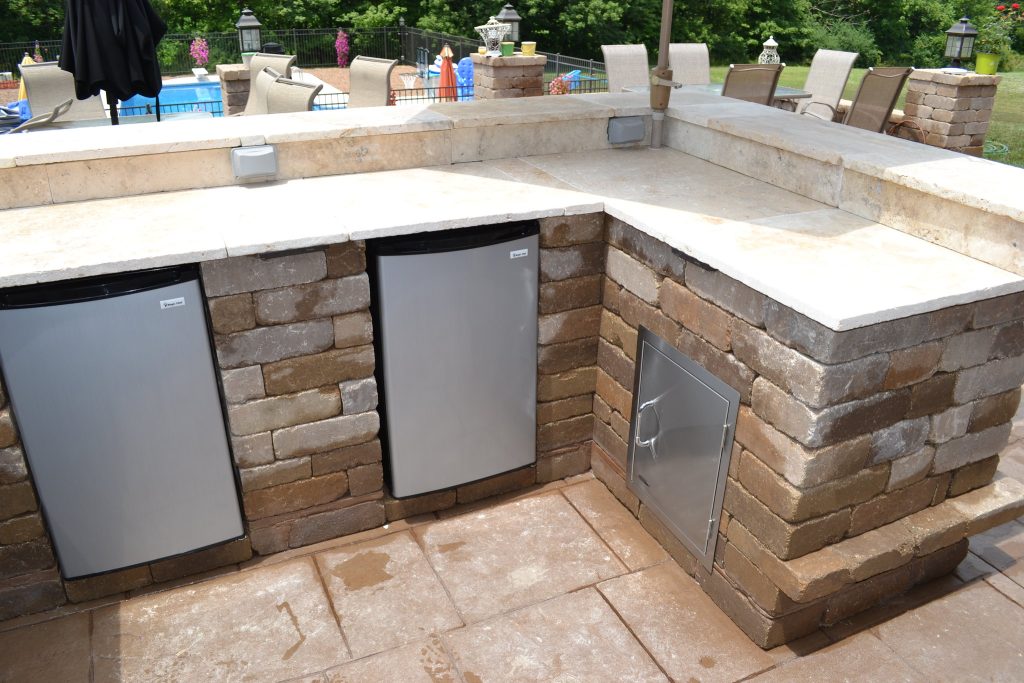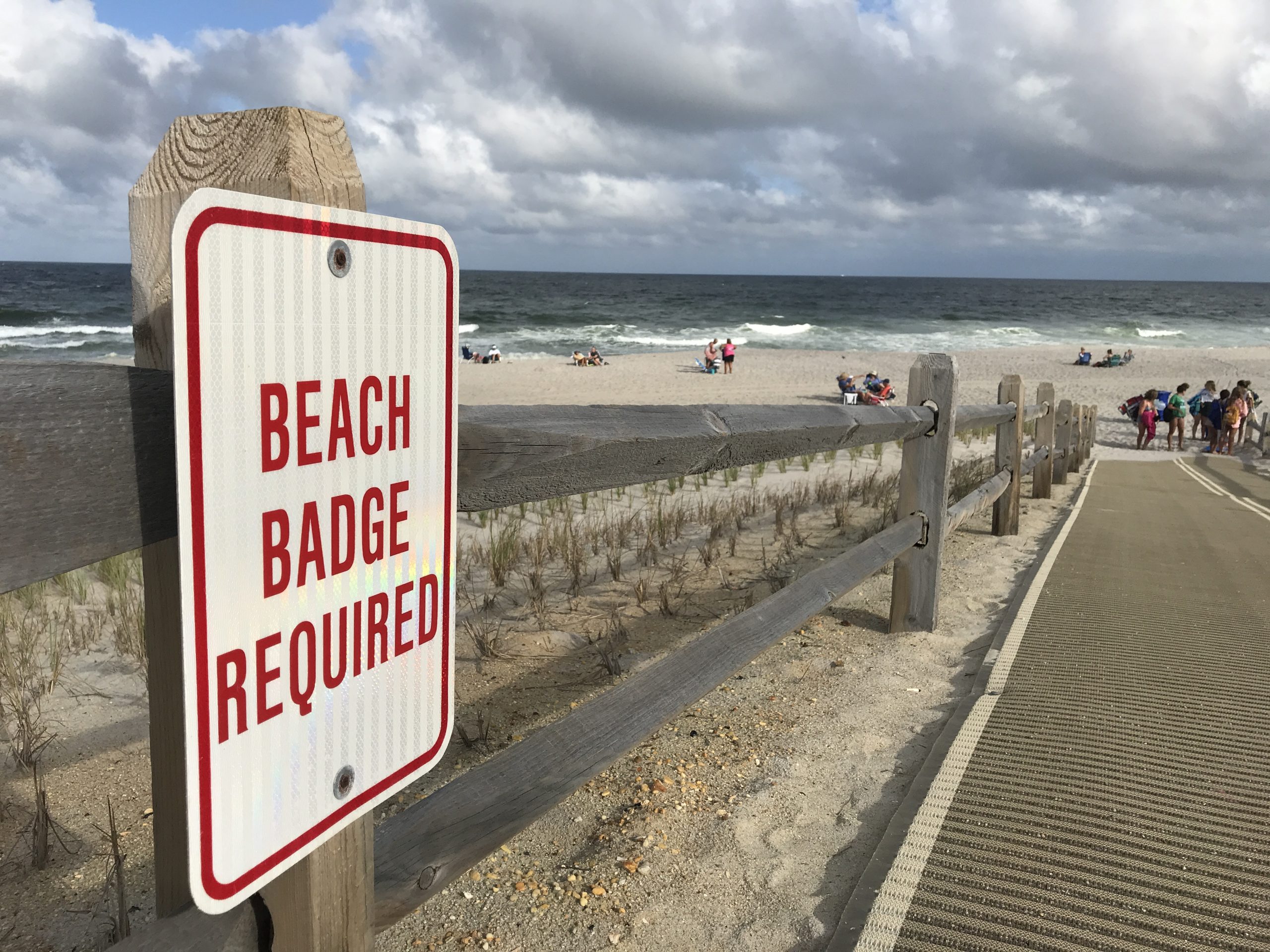
A small feral cat tucked behind a recycling can on the front yard of a home on President Avenue, Lavallette, Aug. 24, 2022. (Photo: Daniel Nee)
Lavallette officials admittedly had a great deal of issues on their plate heading into a borough council meeting this week, with ordinance on the the borough’s feral cat management program, outdoor kitchen regulations and new policies for commercial trash collections all up for a vote.
By the end of the night, both subjects were determined to require more discussion with stakeholders before being passed and implemented. A separate ordinance regulating commercial trash pickups during the busy summer months also generated debate, and will be subject to a public hearing later this month (see separate story).
Cats’ Meow
The feral cat ordinance proposed last month would have added specific language to a borough ordinance designed to prevent some residents from – directly or indirectly – impeding the TNR program. Animal rights activists who came to the meeting haggled over the name of the ordinance with council members, arguing it should be referred to as “Trap, Neuter, Release” or “Trap Neuter, Vaccinate and Release” rather than “Trap, Neuter, Relocate.”
In some cases, officials said, cats are returned to the community after being neutered, while in other cases they are relocated. Lavallette, like many Shore communities, has faced issues with seasonal residents and vacationers leaving their cats behind when they leave to return to their primary residences, placing non-feral cats on the street and exacerbating the issues caused by the existing feral cat population, which has been successfully reduced in a significant way by the TNR program – regardless of its initials.
The ordinance introduced last month expands on the existing prohibition of the feeding of wildlife to include cats on private property, and allows the borough to order a resident to stop feeding feral cats. In some cases, a combination of well-meaning residents, as well as some who officials believe were intentionally attempting to sabotage the program, began feeding cats, leading to difficulties trapping the animals so they could be neutered.
Councilmen Robert Lamb and James Borowski, at the meeting, held that the language of the ordinance should continue to include the word “relocate,” however the full council decided to meet with a committee of residents and out-of-town volunteers to further discuss the ordinance.
Administrative Law Delicacies
At the same meeting last month, the council introduced an ordinance that would regulate outdoor kitchens, a popular amenity being included in new homes. As it currently stands, the borough code does not address outdoor kitchen setups, requiring residents to make a formal – and often costly – presentation to the planning board, or simply installing outdoor kitchens without a permit.
Some members of the public questioned aspects of the ordinance regarding setbacks, but ultimately – and similarly to the cat ordinance – certain wording must change before final passage. The borough’s existing zoning ordinance does not allow a home to have more than one “kitchen,” therefore the language of the outdoor kitchen ordinance must be modified to include more flexible phraseology, such as “outdoor cooking facility.”
Legally, a “kitchen” is defined around the existence of a stove – not an outdoor grill, refrigerator, sink or kegerator – meaning the ordinance can be passed in the future with minimal changes. Officials, however, were hopeful the ordinance would pass quickly since some property owners were waiting on permits and certificates of occupancy on their new homes.
“We’re trying to make them legal, not make them illegal,” Councilwoman Joanne Filippone emphasized. “We just want some restrictions so they don’t get out of hand.”
Regarding setbacks, outdoor cooking facilities would require an inspection by the borough’s building department before being used, cannot be covered by a roof and must be at least 10-feet from any other building on the lot. Waterfront homes must have a 20-foot rear setback, and they cannot be enclosed on more than two sides.
All outdoor cooking facilities, as they will henceforth be known, would be required to comply with FEMA flood zone requirements, which is another issue officials said needs a closer review before final passage.

Advertisement

Police, Fire & Courts
Police Investigating Possible Shots Fired in Seaside Heights

Police, Fire & Courts
Cops: Juvenile Arrested After 118mph Joy Ride in Seaside Heights, Toms River Kills 2

Seaside Heights & Seaside Park
Seaside Heights Mourns Passing of Boardwalk Legend, Still Working Into His 90s









